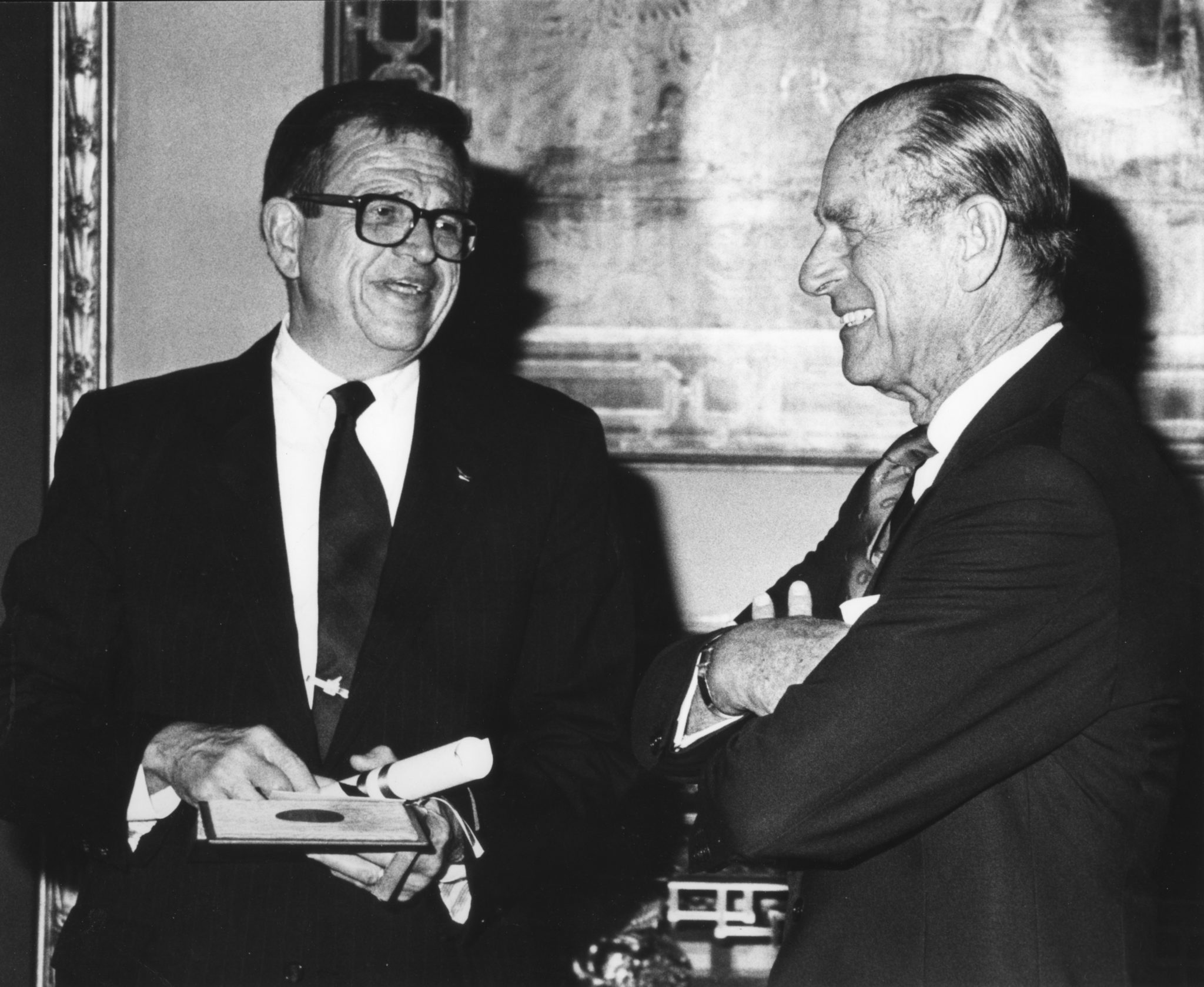In 1973, the first Templeton Prize was given to Mother Teresa. In 2023, we celebrate the 50th anniversary of this award. Over the next 52 weeks, we will highlight each of our laureates and reflect on their impact on the world. From humanitarians and saints to philosophers, theoretical physicists, and one king, the Templeton Prize has honored extraordinary people. Together, they have pushed the boundaries of our understanding of the deepest questions of the universe and humankind’s place and purpose within it, making this (we humbly think) the world’s most interesting prize.
Charles W. Colson received the Templeton Prize for his work for religious freedom and the integration of faith in public policy. Colson was a significant figure in American politics who became a devout Christian and fought for prison reform after working as a political advisor. He underlined the significance of religious liberty and the ability of individuals to publicly profess their faith. Colson thought that religious ideas should guide and shape public dialogue, and he was active in discussions about the moral implications of numerous social and political concerns.
Colson was born in Boston, Massachusetts on October 16, 1931. His childhood was characterized by learning and a growing interest in politics. He attended George Washington University after graduating from Brown University in 1953 and then served in the United States Marine Corps. He then began a political career, working as Special Counsel in the Nixon White House.
Colson committed his life to prison ministry and criminal justice reform after serving a federal prison sentence. After serving time, Colson had a deep spiritual awakening and became a born-again Christian, which had a tremendous impact on his attitude and priorities. He established Prison Fellowship, a Christian non-profit organization that offered spiritual support, rehabilitation programs, and other services to convicts and their families. Prison Fellowship emerged into a powerful force for change in the American criminal justice system under Colson’s leadership, lobbying for reforms such as prisoner education, mentorship programs, and alternative sentencing choices.
Colson’s influence grew beyond prison reform, as he became a well-known author and public speaker on issues such as ethics, morality, and the junction of faith and public life.
Colson's ability to express difficult themes and propose practical solutions to society problems earned him a reputation as a respected and prominent public figure.
His books, such as Born Again and Loving God, became best-sellers, and his public appearances provided insights into the function of faith and the significance of upholding strong ethical principles.
In 1993, Colson was awarded the Templeton Prize for his outstanding contributions to the study of the intersection of religion and public life. His work exemplified the ability of faith to effect positive change and promote ethical principles in public life. Colson’s significant impact on prison ministry and criminal justice reform are a crucial part of his legacy. His dedication to provide spiritual assistance, educational programs, and mentoring to convicts demonstrated his faith in the power of redemption and the possibilities for human reform.
-

Charles W. Colson receiving The Prize from HRH Prince Philip
“I speak as one transformed by Jesus Christ, the living God. He is the Way, the Truth, and the Life. He has lived in me for 20 years. His presence is the sole explanation for whatever is praiseworthy in my work, the only reason for my receiving this award. That is more than a statement about myself. It is a claim to truth. It is a claim that may contradict your own.
Yet on this, at least, we must agree: the right to do what I’ve just done — is the first human right. Religious liberty is the essence of human dignity. We cannot build our temples on the ruins of individual conscience. For faith does not come through the weight of power, but through the hope of glory.”
-Charles W. Colson 1993. Read the full speech here.
“In 1976, Mr. Colson used the first royalties of his best-selling autobiography to found Prison Fellowship, an evangelical outreach organization whose mission is to bring the message of Jesus Christ to prison inmates. The Fellowship had very humble beginnings, but it has grown into a worldwide network of prison ministries in 56 nations. Close to 50,000 volunteers work in more than 800 state and federal prisons in the United States. It is noteworthy that Mr. Colson donates all of his book royalties — he has written 12 books — and speaking fees to the Prison Fellowship.
Prison Fellowship brings the hope-filled message of the gospel — salvation through Christ — to prisoners. It shows them a way to break the cycle of crime which has led to their incarceration. It helps free them of self-defeat, hate, and victimization.”
-Joseph Cardinal Bernardin 1993. Read the full speech here.
Still Curious?
Learn more about the 1993 Templeton Prize laureate here.

